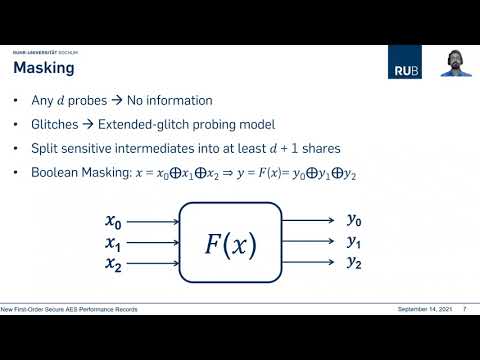CryptoDB
New First-Order Secure AES Performance Records
| Authors: |
|
|---|---|
| Download: | |
| Abstract: | Being based on a sound theoretical basis, masking schemes are commonly applied to protect cryptographic implementations against Side-Channel Analysis (SCA) attacks. Constructing SCA-protected AES, as the most widely deployed block cipher, has been naturally the focus of several research projects, with a direct application in industry. The majority of SCA-secure AES implementations introduced to the community opted for low area and latency overheads considering Application-Specific Integrated Circuit (ASIC) platforms. Albeit a few, those which particularly targeted Field Programmable Gate Arrays (FPGAs) as the implementation platform yield either a low throughput or a not-highly secure design.In this work, we fill this gap by introducing first-order glitch-extended probing secure masked AES implementations highly optimized for FPGAs, which support both encryption and decryption. Compared to the state of the art, our designs efficiently map the critical non-linear parts of the masked S-box into the built-in Block RAMs (BRAMs).The most performant variant of our constructions accomplishes five first-order secure AES encryptions/decryptions simultaneously in 50 clock cycles. Compared to the equivalent state-of-the-art designs, this leads to at least 70% reduction in utilization of FPGA resources (slices) at the cost of occupying BRAMs. Last but not least, we provide a wide range of such secure and efficient implementations supporting a large set of applications, ranging from low-area to high-throughput. |
Video from TCHES 2021
BibTeX
@article{tches-2021-30801,
title={New First-Order Secure AES Performance Records},
journal={IACR Transactions on Cryptographic Hardware and Embedded Systems},
publisher={Ruhr-Universität Bochum},
volume={2021, Issue 2},
pages={304-327},
url={https://tches.iacr.org/index.php/TCHES/article/view/8796},
doi={10.46586/tches.v2021.i2.304-327},
author={Aein Rezaei Shahmirzadi and Dušan Božilov and Amir Moradi},
year=2021
}

